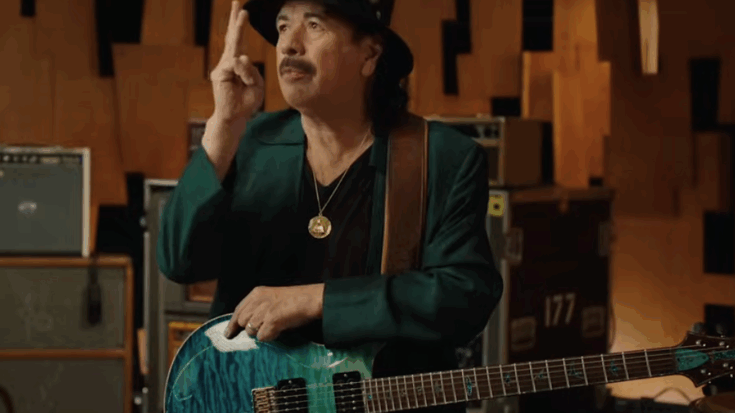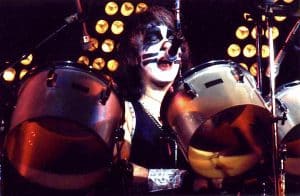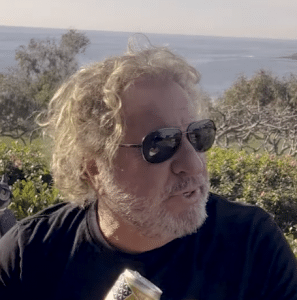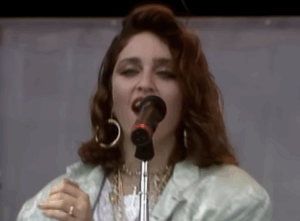The Stars Who’ve Clashed With Carlos Santana

via Santana / YouTube
Carlos Santana’s name is practically woven into the fabric of modern rock history. From the blistering solos at Woodstock to the timeless groove of Supernatural, his music has transcended genres and generations. Blending Latin rhythms with electric psychedelia, Santana built a legacy that few could rival — one defined by innovation, collaboration, and an unmistakable guitar tone that speaks its own language. His influence can be traced across decades of music, from the countercultural explosion of the late ’60s to chart-topping success in the 2000s.
Yet for all the admiration surrounding him, Santana’s career hasn’t been without friction. Behind the calm, spiritual presence lies an artist fiercely devoted to his craft — and not everyone has vibed with his vision. Whether it’s creative disagreements, public comments, or philosophical clashes, the guitarist’s uncompromising nature has occasionally sparked tension with peers who share his stage and era.
Over the years, a surprising number of musicians have butted heads with the man behind “Smooth.” Some disputes have been brief and blown over; others left lasting impressions in rock history. These stories reveal a different side of Santana — not the serene mystic of the spotlight, but a passionate artist unafraid to speak his truth, even when it hits a sour note.
Gene Simmons
Few rock icons are as unapologetically theatrical as Gene Simmons. The Kiss bassist built his career on spectacle — breathing fire, spitting blood, and selling showmanship as loudly as his basslines. But not everyone has been impressed by his brand of rock theater. Carlos Santana, who has long prided himself on the spirituality and purity of music, once took a jab at Kiss’s over-the-top image, arguing that such gimmicks distracted from true musicianship. To him, Simmons wasn’t a musician so much as an entertainer hiding behind pyrotechnics and face paint.
That criticism didn’t sit well with Simmons, a man known for his confidence and quick retorts. When the comments resurfaced years later, he clapped back with characteristic bravado, taking a dig at Santana’s understated stage presence. In an interview with a Las Vegas outlet, Simmons dismissed the guitarist’s approach as dull and self-indulgent, implying that Santana’s performances lacked energy and connection with audiences.
The feud perfectly encapsulated their artistic divide: Santana’s devotion to authenticity versus Simmons’s unapologetic embrace of entertainment. While one found depth in introspection, the other found meaning in fireworks and fanfare. Both philosophies have earned them devoted fans — and perhaps made their clash inevitable.
Brent Hinds
Mastodon’s Brent Hinds has never been one to filter his opinions. As one of metal’s most inventive guitarists, he carries a deep appreciation for technical artistry, which makes his musical critiques hit harder. Hinds once expressed admiration for Santana’s earlier work, even calling himself a fan. But his respect stopped cold at Supernatural, the 1999 album that brought Santana back into mainstream pop culture. For Hinds, the album’s glossy sound — especially the smash hit “Smooth” with Rob Thomas — marked a painful departure from what made Santana special.
In interviews, Hinds has been candid about how much that era of Santana’s music grates on him. “Smooth,” which spent months dominating radio and earned multiple Grammys, wasn’t just a song he disliked — it was one he viscerally rejected. He described the experience of hearing it as almost physical discomfort, comparing it to having his ears scraped raw. His criticism wasn’t personal; it was about watching a revered artist lean too heavily into pop trends.
Despite the harsh words, Hinds’s frustration comes from a place of disappointment rather than contempt. To him, Santana’s fusion of rock and Latin influences once represented innovation and soul — qualities he feels got lost in the commercial polish of Supernatural. His reaction is a reminder that even admiration can turn to disillusionment when artistic evolution crosses into territory some fans can’t follow.
https://twitter.com/weedian_ds/status/1958582397043191937
Paquito D’Rivera
For jazz legend Paquito D’Rivera, Carlos Santana’s controversy wasn’t about music at all — it was about meaning. When Santana performed “Al Otro Lado Del Río” at the 2005 Oscars, his choice of wardrobe sparked outrage among Cuban exiles and survivors of the Castro regime. Wearing a crucifix alongside a shirt emblazoned with Che Guevara, Santana likely intended to honor Latin heritage and revolutionary spirit. But for D’Rivera, who fled communist Cuba, the image symbolized something far darker: oppression, imprisonment, and loss.
In an open letter that quickly gained attention, D’Rivera condemned Santana’s decision as deeply insensitive. He recounted personal family trauma connected to Guevara’s violent legacy, calling the performance a betrayal of those who suffered under the regime. His words carried the weight of lived experience, transforming what might have been a simple wardrobe choice into a moral flashpoint.
The exchange exposed the tension between art, politics, and perception. Santana, known for his spiritual and universal approach to music, likely saw his gesture as one of unity. D’Rivera, however, saw it as a painful reminder of the cost of revolution. Their clash was less about personal animosity and more about the cultural and emotional divides that music — even at its most well-intentioned — sometimes can’t bridge.











